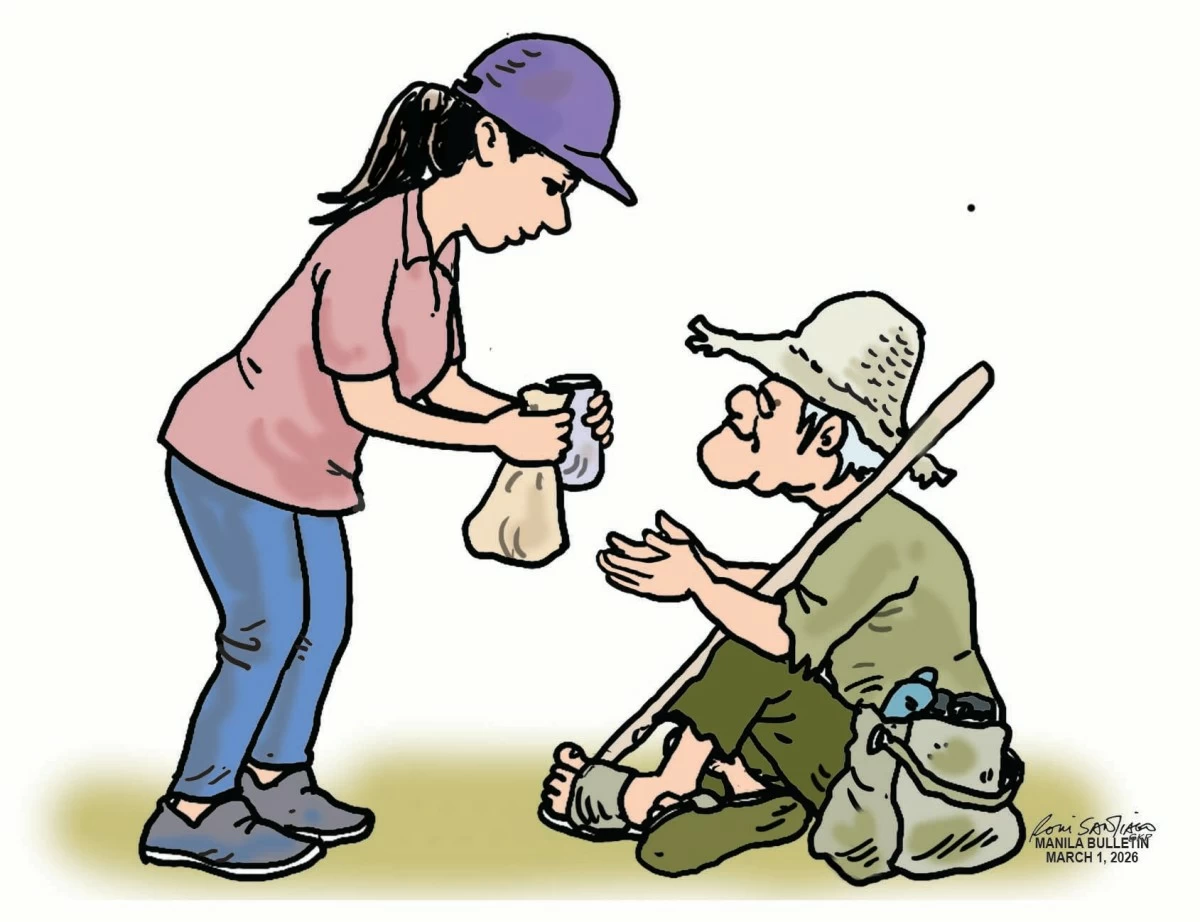
This might not be the typical expat blog, written by a German expat, living in the Philippines since 1999. It's different. In English and in German. Check it out! Enjoy reading! Dies mag' nun wirklich nicht der typische Auswandererblog eines Deutschen auf den Philippinen sein. Er soll etwas anders sein. In Englisch und in Deutsch! Viel Spass beim Lesen!
You plan to move to the Philippines? Wollen Sie auf den Philippinen leben?
Ja, es gibt tonnenweise Webseiten, die Ihnen sagen wie, warum, vielleicht warum nicht und wann Sie am besten auf die Philippinen auswandern könnten. Ich möchte Ihnen in Zukunft "zwischen den Zeilen" einige zusätzlichen Dinge berichten und erzählen. Viel Spass beim Lesen und Gute Unterhaltung!
Total Pageviews
Sunday, March 1, 2026
The grace of a quiet Sunday: A reminder that we are more than our inboxes

Saturday, February 28, 2026
Philippinen: Reise- und Sicherheitshinweise (Teilreisewarnung)
 | Auswärtiges Amt |
Stand - 28.02.2026
INHALT
Info
Lagen können sich schnell verändern und entwickeln. Wir empfehlen Ihnen:
- Abonnieren Sie unseren Newsletter oder nutzen Sie unsere App „Sicher Reisen“.
- Registrieren Sie sich in unserer Krisenvorsorgeliste.
- Beachten Sie die Hinweise im Ratgeber für Notfallvorsorge und des Bundesamts für Bevölkerungsschutz und Katastrophenhilfe.
- Bitte beachten Sie die Hinweise unter COVID-19.
- Achten Sie auf einen ausreichenden Reisekrankenversicherungsschutz.
- Erkundigen Sie sich vorab bei den Behörden/Botschaften Ihres Reiselandes zu den aktuell geltenden, verbindlichen Einreisebestimmungen sowie bei Ihrem Reiseveranstalter/Ihrer Flug-/Schifffahrts-/Eisenbahngesellschaft nach den geltenden Beförderungsbestimmungen.
- Verfolgen Sie bei Ihrer Reiseplanung/während Ihrer Reise Nachrichten und Wetterberichte.
- Beachten Sie unseren Haftungsausschluss und den Hinweis zu Inhalten anderweitiger Anbieter.
Aktuelles
Der Vulkan Mayon (Provinz Albay) zeigt seit Ende 2025 erhöhte Aktivität. Anfang Januar 2026 hat die philippinische Vulkan- und Erdbebenwarte (PHIVOLCS) die Warnstufe 3 (hochgradige Vulkanaktivität, Ausbruch innerhalb Wochen möglich) ausgerufen.
Der Vulkan Kanlaon (Provinzen Negros Occidental und Negros Oriental) zeigt seit mehreren Monaten erhöhte Aktivität. In den vergangenen Tagen verstärkte sich das Ausbruchsgeschehen; eine weitere Erhöhung der Warnstufe (derzeit Stufe 2) ist jederzeit möglich.
Beachten Sie die Teilreisewarnung.
Verfolgen Sie regelmäßig die örtlichen Nachrichten zu aktuellen Entwicklungen und behördlichen Maßnahmen an dem von Ihnen beabsichtigten Reiseziel und auf der Reiseroute. Erkundigen Sie sich dazu auch bei Ihrem Reisebüro/Touranbieter bzw. der gebuchten Unterkunft.
Beachten Sie die Hinweise der philippinischen Vulkan- und Erdbebenwarte (PHIVOLCS). Meiden Sie Gefahrenbereiche um aktive Vulkane weiträumig.
Machen Sie sich mit Verhaltenshinweisen bei Erdbeben, Vulkanen und Tsunamis des Deutschen GeoForschungsZentrums vertraut.
Sicherheit - Teilreisewarnung
Vor Reisen in folgende Regionen oder Gebiete wird gewarnt:
Zamboanga Peninsula (Region IX)
Provinzen Misamis Occidental und Lanao del Norte der Region X
Bangsamoro Autonomous Region in Muslim Mindanao (BARMM)
Soccsksargen (Region XII)
alle Inseln des Sulu-Archipels sowie das dazwischenliegende Seegebiet.
Von nicht erforderlichen Reisen in andere Regionen von Mindanao und in der Mindanao-See wird abgeraten, mit Ausnahme von Davao City sowie der Inseln Camiguin, Dinagat und Siargao.
Die deutsche Botschaft hat in den genannten Gebieten nur äußerst begrenzte Möglichkeiten, Nothilfe für Deutsche zu leisten.
Terrorismus
In mehreren Regionen des Landes besteht eine erhöhte Gefahr terroristischer Anschläge und von Entführungen, sowohl zu Land als auch zur See.
In den in den Sicherheitshinweisen genannten Gebieten sind unterschiedliche Gruppen von islamistischen Terroristen und Rebellen aktiv und es kommt immer wieder zu Anschlägen sowie Kampfhandlungen mit der philippinischen Armee und Sicherheitskräften. Die Armee konnte die von IS-nahen Terroristen besetzte Stadt Marawi 2017 erst nach fünf Monaten schwerster Gefechte mit über 1.000 Todesopfern und hunderttausenden Vertriebenen zurückerobern. Im Dezember 2023 kam es erneut zu einem Terrorangriff in der Stadt Marawi mit mehreren Todesopfern, zu dem sich der Islamische Staat (IS) bekannt hat.
In Westmindanao werden bis heute vermehrt Bombenanschläge verübt, bei denen bereits zahlreiche Menschen getötet und eine noch höhere Zahl von Personen verletzt wurden. Die Anschlagsziele lagen u.a. in Midsayap, Cotabato City, Isulan, General Santos City und Datu Saudi Ampatuan auf Mindanao; in Lamitan City auf Basilan sowie auf Jolo und Indanan in Sulu.
Die in der Region operierende islamistische Terrorgruppe Abu Sayyaf ist für Entführungen und Ermordungen vor allem auf Mindanao und in der Sulu-See verantwortlich und zielt auf ausländische Entführungsopfer; auch deutsche Geiseln wurden bereits getötet. Ortskundige Ausländer sind ebenfalls gefährdet.
Seien Sie insbesondere an belebten Orten und bei ungewöhnlichen Ereignissen aufmerksam.
Beachten Sie den weltweiten Sicherheitshinweis.
Innenpolitische Lage
Im Vorfeld der aufgrund einer Entscheidung des Supreme Courts auf voraussichtlich März 2026 verschobenen regionalen Parlamentswahlen in der Bangsamoro Autonomous Region in Muslim Mindanao (BARMM) besteht vorrangig, aber nicht ausschließlich in dieser Region eine erhöhte Gefahr politisch motivierter bewaffneter Auseinandersetzungen.
Beachten Sie die bestehende Teilreisewarnung für die BARMM.
Informieren Sie sich über die lokalen Medien.
Meiden Sie Demonstrationen und größere Menschenansammlungen weiträumig.
Folgen Sie den Anweisungen der Sicherheitskräfte.
Der seit 2016 geführte „Krieg gegen Drogen“ hat tausende Todesopfer gefordert, die bis 2022 bei Polizeieinsätzen ums Leben kamen. Offizielle Quellen sprechen von 8.500 Personen, Nichtregierungsorganisationen schätzen die Zahl mit bis zu 30.000 Opfern weit höher. Der „Krieg gegen Drogen“ wird unter der aktuellen Regierung in abgeschwächter Form mit neuem Ansatz geführt. Dennoch besteht weiterhin die Gefahr, „zur falschen Zeit am falschen Ort“ zu sein und in Schusswechsel zu geraten.
Es kann zu Protesten und Demonstrationen kommen, bei denen auch gewalttätige Auseinandersetzungen nicht ausgeschlossen werden können.
Seien Sie im gesamten Land besonders vorsichtig und meiden Sie jeden Kontakt mit Drogen und Personen, die mit Drogen handeln.
Folgen Sie den Anweisungen lokaler Sicherheitskräfte.
Kriminalität
Die Kriminalitätsrate ist hoch. Es kommt zu Taschendiebstählen, Handtaschenraub, z.B. durch Motoradfahrer, und zu verschiedenen Betrugsmaschen. Straßenkriminalität ist auf hohem Niveau.
Von schweren Gewaltverbrechen sind vor allem Einheimische bedroht, jedoch kommt es auch vereinzelt zu Überfällen auf Ausländer sowohl durch organisierte Banden als auch durch Einzeltäter. Hiervon ist auch der Autoverkehr, z.B. wartende Fahrzeuge an Ampeln, betroffen.
Entführungen, insbesondere von Geschäftsleuten, und andere Erpressungsmethoden zwecks Erlangung von Löse- und Schutzgeldern, sind verbreitet. Vereinzelt platzieren auch Sicherheitsmitarbeiter verbotene Gegenstände in das Gepäck von Reisenden, um unter Androhung von Strafen und des Herbeiziehens von Polizei aufgrund angeblich begangener Ordnungswidrigkeiten Geld zu erpressen.
Vereinzelt werden Touristen gebeten, Gegenstände und Gepäckstücke zu transportieren, insbesondere auf inländischen, aber auch internationalen Flügen. Hierbei kann es sich um Drogen handeln, deren Fund bei Kontrollen meist schwerwiegende Folgen für Touristen hat (siehe Reiseinfos - Rechtliche Besonderheiten).
In Vergnügungsvierteln kommt es zum Einsatz von Drogen bzw. K.-o.-Tropfen in Speisen und Getränken, um einen Raub zu begehen oder zu einer erhöhten Rechnung zu gelangen. Dies kann auch bei auf der Straße angehaltenen Taxis sowie Touristenführern vorkommen.
Kreditkartenbetrug und Trickbetrügereien (Scams) beim Geldwechsel, aber auch per Telefon und E-Mail sind ebenfalls weit verbreitet.
Aus den Philippinen heraus werden häufig Internetbetrügereien begangen. Nicht selten werden zunächst im Internet persönliche Scheinbeziehungen angebahnt, um sich dann Geld zu leihen, welches nie zurückgezahlt wird.
Bewahren Sie Geld, Ausweise, Führerschein und andere wichtige Dokumente sicher auf; speichern Sie ggf. elektronische Kopien/Fotos. Dies erleichtert im Falle von Diebstahl oder Verlust die Ausstellung eines Ersatzdokuments.
Bevorzugen Sie bargeldlose Zahlungen, lassen Sie Ihre Karten nicht außer Sicht und nehmen Sie nur das für den Tag benötigte Bargeld und keine Wertsachen mit.
Seien Sie in größeren Menschenmengen wie an Flughäfen, Busbahnhöfen, im Bus besonders aufmerksam und achten Sie auf Ihre Wertsachen.
Halten Sie bei Fahrten mit Privat-Pkw oder Taxi in der Stadt die Türen und die Fenster geschlossen.
Nutzen Sie möglichst nur offizielle Taxis oder Hoteltaxis, achten Sie auf den Einsatz des Taxameters oder vereinbaren Sie den Fahrpreis vor Fahrtantritt.
Nehmen Sie keine Angebote von Fremden zu Touristenführungen an und lehnen Sie die Mitnahme von Gepäckstücken ab.
Lassen Sie Speisen und Getränke nie unbeaufsichtigt und nehmen diese nicht von Fremden an.
Seien Sie in Gesellschaft bei Alkoholkonsum vorsichtig und zurückhaltend.
Seien Sie bei ungewohnten E-Mails, Gewinnmitteilungen, Angeboten und Hilfeersuchen angeblicher Bekannter skeptisch. Teilen Sie keine Daten von sich mit, sondern vergewissern Sie sich ggf. persönlich der Glaubwürdigkeit oder wenden Sie sich an die Polizei.
Natur und Klima
Tropenstürme und Überschwemmungen
Es herrscht maritimes Tropenklima, vor allem im Südosten ganzjährig mit hoher Luftfeuchtigkeit.
Jährlich ziehen durchschnittlich 20 Taifune über das Gebiet der Philippinen, vor allem in der Regenzeit von Juni bis Dezember. Dabei kommt es örtlich zu heftigen, lebensbedrohlichen Stürmen und Starkregenfällen, die Überschwemmungen und Erdrutsche auslösen können. Die Infrastruktur wird regelmäßig stark beschädigt; Straßen und Brücken können unpassierbar werden.
Erdbeben, Vulkane, Tsunamis
Die Philippinen liegen in einer seismisch sehr aktiven Zone, dem Pazifischen Feuerring, sodass es jederzeit zu Erd- und Seebeben, vulkanischen Aktivitäten sowie Tsunamis kommen kann.
Stärkere Erdbeben richten regelmäßig erhebliche Schäden an und fordern Todesopfer.
In den Philippinen gibt es über 50 aktive Vulkane. Der höchste ist der knapp 3.000 m hohe Mount Apo; der aktivste Feuerberg ist der Mayon; als gefährlichster gilt der Pinatubo. Der Taal gilt als Supervulkan. Es gelten oft Gefahrenstufen und Sperrzonen. Die Vulkane Taal, Kanlaon und Mayon zeigen derzeit erhöhte Aktivität.
Vulkaneruptionen und Ascheregen mit Auswirkungen auf den Flugverkehr sind jederzeit möglich.
Beachten Sie Wettervorhersagen und insbesondere Taifunwarnungen wie beim Joint Typhoon Warning Center oder beim philippinischen Wetterdienst „Pagasa“.
Beachten Sie die Hinweise zu Wirbelstürmen im Ausland bzw. die Hinweise des Bundesamts für Bevölkerungsschutz und Katastrophenhilfe im Fall einer Sturmwarnung.
Beachten Sie bei aktuellen vulkanischen Aktivitäten und Erdbeben die Hinweise der philippinischen Vulkan- und Erdbebenwarte (PHIVOLCS). Meiden Sie Gefahrenbereiche um aktive Vulkane weiträumig.
Machen Sie sich mit Verhaltenshinweisen bei Erdbeben, Vulkanen und Tsunamis des Deutschen GeoForschungsZentrums vertraut.
Beachten Sie stets Verbote, Hinweisschilder und Warnungen sowie die Anweisungen lokaler Behörden.
Reiseinfos
Infrastruktur/Verkehr
Es gibt ein Inlandsflugnetz, zahlreiche Fährverbindungen, Überlandbusse, teilweise Schienenverkehr und Taxidienste.
Fähren sind häufig überladen, nicht immer mit ausreichend Rettungsbooten ausgestattet, oft unzureichend gewartet und relativ gering gesichert. Auch andere öffentliche Verkehrsmittel sind häufig überfüllt und schlecht gewartet.
Ungeachtet der im Beförderungsschein enthaltenen Gebühren fallen häufig gesonderte Flug- oder Seehafengebühren vor Ort an, die in der Regel in bar zu entrichten sind.
Der Zustand der Straßen ist landesweit in der Regel schlecht. Es gibt sehr viel Verkehr in Ballungszentren. Fahrzeuge in oft keinem guten technischen Zustand und mangelnde Fahrdisziplin stellen erhöhte Unfallgefahren dar.
Reiseziele mit ausgebauter touristischer Infrastruktur finden sich insbesondere auf einzelnen Inseln der Inselgruppe der Visayas (z.B. Cebu, Bohol). Informationen zu zugelassenen Touristenunterkünften bietet das philippinische Department of Tourism sowie die Philippine News Agency.
Mobiltelefone haben auf einigen Inseln nur eingeschränkten oder keinen Empfang.
Vermeiden Sie Fahrten mit Fähren, wenn andere Reisemöglichkeiten bestehen.
Nutzen Sie einfache öffentliche Transportmittel nicht.
Lassen Sie besondere Vorsicht in der Regenzeit walten.
Vermeiden Sie Nachtfahrten.
Erfragen Sie mögliche Zusatzgebühren beim Beförderer oder beim Flug- bzw. Seehafen.
Führerschein
Der deutsche Führerschein wird für touristische Aufenthalte bis zu drei Monaten anerkannt.
Es gibt in den Philippinen keine gegen die Rechte von LGBTIQ-Personen gerichteten gesetzlichen Einschränkungen; eine völlige rechtliche Gleichstellung besteht jedoch nicht. Das philippinische Familienrecht kennt keine gleichgeschlechtliche Partnerschaft/Ehe und erkennt diese nicht an.
Die Akzeptanz ist gesellschaftlich gut ausgeprägt. Zahlreiche offen homosexuelle Modedesigner, Schauspieler und Künstler genießen große gesellschaftliche Akzeptanz.
Beachten Sie dennoch die allgemeinen Hinweise für LGBTIQ.
Rechtliche Besonderheiten
Sehr hohe Freiheitsstrafen werden verhängt bei Drogenstraftaten, Sexualdelikten und insbesondere bei Kindesmissbrauch und Menschenhandel. Prostitution ist in den Philippinen verboten.
Illegaler Drogenbesitz wird in den Philippinen mit harten Gefängnisstrafen geahndet, ab 5 g ist lebenslange Freiheitsstrafe möglich; bei einer Festnahme in einem Flug- oder Fährhafen wird strafverschärfend Handel unterstellt. Die eindringlichen Warnungen der Behörden sollten unbedingt befolgt werden.
Die philippinische Regierung verbietet Alkoholkonsum auf der Straße und das Rauchen außerhalb ausgewiesener Raucherzonen; bei Zuwiderhandlungen drohen Geldbuße oder auch Arrest. Die Ahndung von Verstößen ist uneinheitlich, insbesondere auch Ausländer werden für Übertretungen zur Rechenschaft gezogen.
Geld/Kreditkarten
Landeswährung ist der philippinische Peso (PHP). Geldautomaten stehen landesweit zur Verfügung, für einen Aufenthalt in der Provinz ist jedoch die Mitnahme von Bargeld in USD oder EUR anzuraten. Kreditkarten sind ein gängiges Zahlungsmittel, jedoch werden Karten ausländischer Banken außerhalb renommierter Geschäfte und Hotels als Zahlungsmittel gelegentlich nicht akzeptiert.
Klären Sie mit Ihrer Bank oder Kreditkartengesellschaft, ob die betreffende Karte für die Philippinen freigeschaltet werden muss.
Einreise und Zoll
Einreise- und Zollbestimmungen für deutsche Staatsangehörige können sich kurzfristig ändern, ohne dass das Auswärtige Amt hiervon vorher unterrichtet wird. Bitte erkundigen Sie sich daher vorab zusätzlich bei den Vertretungen Ihres Ziellandes. Nur dort erhalten Sie rechtsverbindliche Informationen und/oder über diese Hinweise hinausgehende Informationen zu den Einreise- und Zollbestimmungen Ihres Reiselandes.
Der deutsche Zoll informiert über die aktuell geltenden Zollbestimmungen bei Einreise nach Deutschland.
Reisedokumente
Die Einreise ist für deutsche Staatsangehörige mit folgenden Dokumenten möglich:
Reisepass: Ja
Vorläufiger Reisepass: Ja
Personalausweis: Nein
Vorläufiger Personalausweis: Nein
Kinderreisepass: Ja
Anmerkungen:
Reisedokumente sollten noch sechs Monate über die vorgesehene Aufenthaltsdauer hinaus gültig sein.
Registrierung vor Einreise
Vor Einreise ist eine Registrierung im Einreiseportal der philippinischen Regierung erforderlich. Die Registrierung kann über die Webseite oder per App erfolgen. Der Nachweis in Form eines QR-Codes wird von Fluggesellschaften am Check-in häufig angefordert. Nähere Informationen können bei der philippinischen Botschaft erfragt werden.
Visum
Deutsche Staatsangehörige benötigen für die Einreise ein Visum.
Deutschen Touristen wird unter Vorlage eines gültiges Rück- bzw. Weiterflugtickets bei Einreise ein gebührenfreies Visum (Visa on Arrival bzw. Visa Waiver) für 30 Tage erteilt.
Die philippinische Immigrationsbehörde achtet bei der Ausreise von Ausländern darauf, dass die Gültigkeitsdauer des Visums nicht überschritten wurde; bei Verstößen wird die Ausreise erst nach Bezahlung hoher Strafgebühren und ggf. Haft gestattet.
Für die Verlängerung eines Visums ist das Bureau of Immigration (BI), Intramuros, Manila oder ein örtliches BI-Regionalbüro (u.a. in Cagayan de Oro, Cebu City, Davao City, Iloilo, Pampanga, San Fernando, Tacloban) zuständig. Die Verlängerung eines Visa on Arrival (auf insgesamt max. 59 Tage Aufenthalt) sowie die Verlängerung touristischer Visa sind seit 2023 auch über das Onlineportal des BI möglich.
Für eine Arbeitsaufnahme, Geschäftsvisa oder längerfristigen Aufenthalt ist grundsätzlich vorab bei der zuständigen philippinischen Auslandsvertretung ein Visum einzuholen.
Am Flughafen wird ein nach soziokulturellem Verständnis grob unhöfliches Benehmen mit Verweigerung der Einreise, Geldstrafe oder Haft sanktioniert.
Minderjährige
Alleinreisende oder in Begleitung sonstiger Personen reisende Kinder unter 15 Jahren benötigen eine Reiseerlaubnis („Waiver of Exclusion Ground“), ausgestellt von der philippinischen Botschaft in Berlin, in dem die Eltern bestätigen, dass sie mit der Reise einverstanden sind. In jüngster Zeit wird diese Regelung verschärft durchgesetzt. Es ist dabei rechtlich vorgesehen, dass bei Einreise eine Gebühr von 3.120 PHP erhoben werden kann und der Pass der betroffenen Person bis zur Ausreise am Flughafen einbehalten wird. Nähere Informationen bietet das Bureau of Immigration and Deportation.
Einfuhrbestimmungen
Ohne Anmeldung ist die Ein- und Ausfuhr von 50.000 PHP und 10.000 US-Dollar gestattet.
Importverbote bestehen insbesondere für
Nachtsichtgeräte,
Waffen, Waffenteile und Munition, auch wenn sie nur dekorativen Charakter haben (z.B. Amulette in Waffenform, die überall angeboten werden),
Subversive, obszöne oder pornographische Materialien und
Medikamente oder medizinische Geräte zur Durchführung einer Abtreibung.
Bei einer Festnahme in einem Flug- oder Fährhafen in Zusammenhang mit Drogenbesitz wird strafverschärfend Handel unterstellt, siehe Reiseinfos - Rechtliche Besonderheiten.
Tiere
Für die Einfuhr von Tieren muss vorab beim Bureau of Animal Industry eine Erlaubnis eingeholt werden, die mit zwei- bis dreimonatiger Gültigkeit ausgestellt wird.
Gesundheit
Für die direkte Einreise aus Deutschland sind keine Pflichtimpfungen vorgeschrieben. Bei Einreise aus einem Gelbfiebergebiet oder Aufenthalt von mehr als 12 Stunden im Transit eines Gelbfiebergebiets müssen alle Personen ab einem Alter von einem Jahr eine Gelbfieberimpfung nachweisen. Die Philippinen selbst sind kein Gelbfieberinfektionsgebiet.
Achten Sie darauf, dass sich bei Ihnen und Ihren Kindern die Standardimpfungen gemäß Impfkalender der STIKO auf dem aktuellen Stand befinden. Aufgrund wiederholter Ausbrüche sollte insbesondere ein adäquater Impfschutz für Masern, Diphtherie und Pertussis (Keuchhusten) sichergestellt werden.
Als Reiseimpfungen werden Impfungen gegen Hepatitis A, bei Langzeitaufenthalt oder besonderer Exposition auch gegen Chikungunya- und Denguefieber, Hepatitis B, Tollwut, Typhus und Japanische Enzephalitis empfohlen.
Zika-Virus-Infektion
Die vorrangig durch tagaktive Aedes-Mücken übertragene Infektion mit Zika-Viren kann in der Schwangerschaft zu Fehlbildungen beim Kind führen sowie neurologische Komplikationen beim Erwachsenen hervorrufen.
Beachten Sie für Ihre Reise die Empfehlungen zur Zika-Virus-Infektion.
Denguefieber
Dengueviren werden landesweit insbesondere während und kurz nach der Regenzeit durch tagaktive Aedes-Mücken übertragen. Die Erkrankung geht in der Regel mit Fieber, Hautausschlag sowie ausgeprägten Gliederschmerzen einher und betrifft zunehmend auch Reisende. In seltenen Fällen treten insbesondere bei Kindern schwerwiegende Komplikationen incl. möglicher Todesfolge auf. Insgesamt sind Komplikationen bei Reisenden jedoch selten. Eine Chemoprophylaxe und eine spezifische Therapie existieren nicht. Eine Impfung ist verfügbar, siehe Denguefieber.
Schützen Sie sich zur Vermeidung von Denguefieber im Rahmen einer Expositionsprophylaxe insbesondere tagsüber konsequent vor Mückenstichen.
Lassen Sie sich bezüglich einer Impfung von Tropen- und/oder Reisemedizinern beraten.
Chikungunya-Fieber
Chikungunya-Viren werden von tagaktiven Aedes-Mücken übertragen. Die Erkrankung ist gekennzeichnet durch hohes Fieber und unter Umständen länger anhaltenden Gelenk- und Muskelschmerzen. Die Beschwerden können oft nicht eindeutig von anderen durch Mücken übertragenen Erkrankungen unterschieden werden. Chikungunya-Fieber heilt nicht immer folgenlos aus, selten kommt es zu lang anhaltenden rheuma-ähnlichen Beschwerden. Weitere Informationen siehe Chikungunya-Fieber.
Schützen Sie sich zur Vermeidung von Chikungunya-Fieber im Rahmen einer Expositionsprophylaxe insbesondere tagsüber konsequent vor Mückenstichen.
Malaria ist eine schwerwiegende Erkrankung, die durch Mücken übertragen wird. Der Anteil der gefährlichen Malaria tropica (P. falciparum) und Mischinfektionen beträgt 85 %, 14% entfallen auf die Malaria tertiana (Plasmodium vivax) und 1% auf Plasmodium knowlesi. Eine Karte der Malaria-Risikogebiete stellt die DTG zur Verfügung. Das Malariarisiko besteht ganzjährig, ist regional unterschiedlich:
Hohes Risiko: im südlichen Drittel der Insel Palawan.
Mittleres Risiko: im mittleren Drittel der Insel Palawan.
Geringes Risiko: im nördlichen Drittel der Insel Palawan; Inseln wie beispielsweise Busuanga, Coron, Culion, Cuyo, Dumaran, Ilin, Linapacan, Mindoro, Mindanao und Inseln südlich von Mindanao.
Malariafrei: Manila und andere große Städte; Rest des Landes, sofern nicht o. g. einschl. der zentralen Inseln wie Cebu und Bohol.
Schützen Sie sich den ganzen Tag über konsequent vor Mückenstichen. Benutzen Sie regelmäßig Mückenschutzmittel und tragen entsprechende Kleidung. Verwenden Sie nachts Bettnetze, siehe Schutz vor Insekten.
Zur Verhinderung einer Malaria ist in Gebieten mit hohem Malariarisiko zusätzlich zum Mückenschutz eine Tabletteneinnahme sinnvoll. Lassen Sie sich bzgl. der Auswahl entsprechender Medikamente ärztlich beraten.
Bei Reisen in Gebiete mit mittlerem Malariarisiko, die mehr als 48 Stunden von der nächsten medizinischen Einrichtung mit Möglichkeit zur Malariadiagnostik und -therapie entfernt sind, ist die Mitnahme von entsprechenden Medikamenten zur notfallmäßigen Selbstbehandlung empfohlen. Lassen Sie sich bezüglich der Auswahl entsprechender Medikamente ärztlich beraten.
HIV/AIDS
Durch sexuelle Kontakte, bei Drogengebrauch (unsaubere Spritzen oder Kanülen) und Bluttransfusionen besteht ein grundsätzliches HIV-Übertragungsrisiko.
Verwenden Sie stets Kondome, insbesondere bei Gelegenheitsbekanntschaften.
Durchfallerkrankungen
Bei Durchfallerkrankungen handelt es sich um häufige Reiseerkrankungen, siehe Durchfallerkrankungen. Durch eine entsprechende Lebensmittel- und Trinkwasserhygiene lassen sich die meisten Durchfallerkrankungen jedoch vermeiden. Zum Schutz Ihrer Gesundheit beachten Sie daher folgende grundlegende Hinweise:
Trinken Sie ausschließlich Wasser sicheren Ursprungs, nie Leitungswasser. Durch den Kauf von Flaschenwasser mit Kohlensäure kann eine bereits zuvor geöffnete Flasche leichter identifiziert werden.
Benutzen Sie unterwegs auch zum Geschirrspülen und Zähneputzen möglichst Trinkwasser.
Falls kein Flaschenwasser zur Verfügung steht, verwenden Sie gefiltertes, desinfiziertes oder abgekochtes Wasser.
Kochen oder schälen Sie Nahrungsmitteln selbst.
Halten Sie unbedingt Fliegen von Ihrer Verpflegung fern.
Waschen Sie sich so oft wie möglich mit Seife die Hände, stets jedoch vor der Essenszubereitung und vor dem Essen.
Wenn möglich, desinfizieren Sie Ihre Hände mit Flüssigdesinfektionsmittel.
Japanische Enzephalitis
Bei der Japanischen Enzephalitis (JE) handelt es sich um eine Entzündung des Gehirns, die von Viren verursacht wird. Diese werden ganzjährig von nachtaktiven Stechmücken übertragen, insbesondere in den Monaten Juni und Juli. Vor allem Schweine und Wasservögel sind mit dem Virus infiziert, ohne dabei selber zu erkranken. Erkrankungen beim Menschen sind eher selten, verlaufen dann aber häufig schwer und hinterlassen oft bleibende Schäden oder enden tödlich. Es gibt keine wirksamen Medikamente gegen die JE-Viren, siehe Japanische Enzephalitis.
Schützen Sie sich zur Vermeidung von Japanischer Enzephalitis im Rahmen einer Expositionsprophylaxe insbesondere tagsüber konsequent vor Mückenstichen und lassen Sie sich impfen.
Leptospirose
Nach Überschwemmungen wie z.B. nach Taifunen kommt es regelmäßig unter der betroffenen Bevölkerung zu Leptospiroseinfektionen. Hautkontakt mit Überschwemmungswasser sollte unbedingt vermieden werden, siehe Leptospirose.
Tollwut
Die WHO hat 2019 einen Hinweis auf drei gefälschte Tollwutimpfstoffe (Verorab®, Speeda® und Rabipur®) sowie ein gefälschtes Anti-Tollwut-Serum (Equirab®) auf den Philippinen veröffentlicht.
Bei der Tollwut handelt es sich um eine regelmäßig tödlich verlaufende Infektionskrankheit, die durch Viren verursacht wird, welche mit dem Speichel infizierter Tiere oder Menschen übertragen werden. Landesweit besteht ein hohes Risiko an Bissverletzungen durch streunende Hunde. Die notwendigen medizinischen Maßnahmen nach Bissverletzungen eines Ungeimpften sind nicht immer möglich. Einen zuverlässigen Schutz vor der Erkrankung bietet die Impfung, siehe Tollwut.
Vermeiden Sie den Kontakt mit streunenden Tieren.
Lassen Sie sich hinsichtlich einer Tollwut-Impfung beraten und ggf. impfen.
Suchen Sie auch bei bestehender Impfung nach Kontakt mit einem potentiell infizierten Tier oder Menschen (Biss, Belecken verletzter Hautareale oder Speicheltröpfchen auf den Schleimhäuten von Mund, Nase und Augen) umgehend einen Arzt auf.
Tuberkulose
Tuberkulose kommt landesweit wesentlich häufiger als in Mitteleuropa vor. Die Übertragung erfolgt von Mensch zu Mensch über Tröpfcheninfektion oder enge Kontakte. Durch unsachgemäße oder abgebrochene Behandlungen gibt es zunehmend resistente Tuberkuloseerreger.
Luftverschmutzung
Informieren Sie sich über aktuelle Luftwerte z.B. über den World Air Quality Index.
Medizinische Versorgung
In Manila wie in den anderen größeren Metropolen des Landes ist die ambulante und stationäre ärztliche Versorgung durch private Krankenhäuser gut geregelt. In ländlichen Gebieten ist dies - inklusive des Rettungswesens – in der Regel nicht der Fall. Die meisten Ärzte können sich auf Englisch verständigen, Medikamente sind in breiter Auswahl in den Apotheken erhältlich.
Schließen Sie für die Dauer des Auslandsaufenthaltes eine Auslandsreise-Kranken- und Rückholversicherung ab.
Nehmen Sie eine individuelle Reiseapotheke mit und schützen Sie diese unterwegs gegen hohe Temperaturen.
Lassen Sie sich vor einer Reise durch reisemedizinische Beratungsstellen, Tropen- oder Reisemediziner persönlich beraten und Ihren Impfschutz anpassen. Entsprechende Ärzte finden Sie z. B. über die DTG.
Friday, February 27, 2026
Kuh Ledesma sets 'Ikaw Part Two' Valentine show on Feb. 28
By Manila Bulletin Entertainment
Are you still in love? Or has a new love found its way into your heart?
As the song goes, each day is Valentine’s Day. And because love deserves more than just one night, we are celebrating it once again, with part two of the successful Valentine show “Ikaw” by Kuh Ledesma, with guests Bo Cerrudo and Jack Salud, plus a new breed of young singers, set at the new theater ARTE in Hacienda Isabella.
The first run left audiences wanting more. There are so many beautiful songs still waiting to be sung, so by popular demand, there’s part two.
But this second chapter is more than just a repeat or extended performance. It is a celebration. A reminder that love is not seasonal. It is a day-to-day commitment.
This show is extra special because it is staged at ARTE, a newly created venue born out of Kuh’s steadfast commitment to the arts. Known for her staunch and unwavering support of Filipino artistry, Kuh envisioned ARTE not merely as a performance space but as a nurturing ground for talents.
Just as she once founded the iconic Music Museum, a venue that became a landmark for live performances, Kuh now opens a new venue, ARTE. A place where seasoned artists can continue to shine and a new home where young artists can hone their talent.
For Kuh, producing shows is never just about mounting a production. It is about mentorship. It is about sustaining the arts. It is about providing the next generation of performers with another venue to grow, experiment, and try out different expressions. So are you still in love? Or have you found a new love?
Maybe both. It’s okay because in ARTE, each day is Valentine’s Day and always “Ikaw pa rin." Catch "Ikaw pa rin" will be held at the ARTE of Hacienda Isabella (0960-8850288/0920-2868895) on Feb. 28, 2026. (Robert Requintina)
Public awareness campaign on online gambling needed
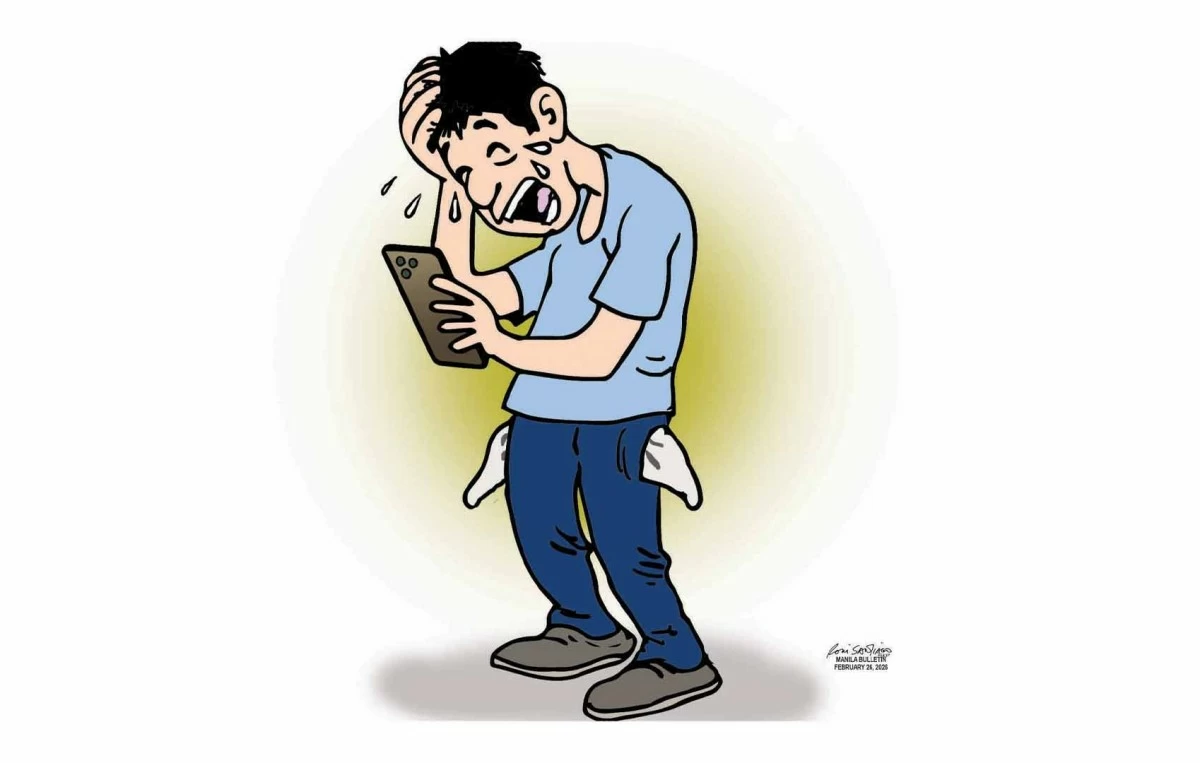
Monday, February 23, 2026
A Filipino twist on a Middle Eastern classic
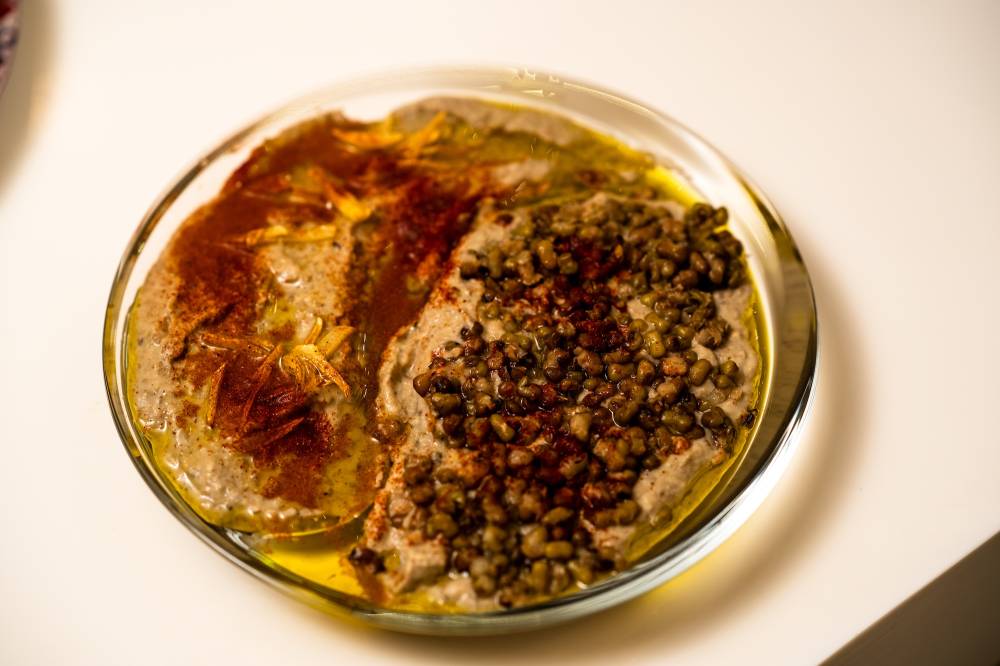
In Filipino kitchens, monggo (mung beans) are synonymous with comfort. Simmered into hearty stews with malunggay, garlic, and sometimes tinapa or pork, monggo is a Friday staple in many households.
Meanwhile, in the Middle East, chickpeas are transformed into silky, lemony hummus—one of the region’s most beloved dishes. My husband’s first baby steps into plant-based eating was brought on by a love for hummus. Our fridge is stocked with hummus at any given moment. To lower the calories brought by olive oil, I use aquafaba or water that the beans are soaked in to add to the liquid, with the oil providing its taste instead of relying on it for texture and creaminess.
What happens when these two culinary traditions meet? You get monggo hummus—a vibrant, protein-rich spread that blends Filipino ingredients with Middle Eastern technique. The result is familiar yet new: earthy, creamy, and bright with citrus.
Monggo is the most researched Filipino legume, and for good reason. Its high protein content and year-round availability make it an affordable protein source. Most of us are used to eating monggo in the most common form: monggo guisado, topped with pork, fish, or served alongside paksiw.
Monggo was the first dish I used in creating my dishes for Mesa ni Misis—monggo Bolognese. Just like Bolognese recipes, the flavor varies from Filipino party spaghetti, which is sweet, to a more sophisticated version that uses red wine. The main point is to use the monggo, which is so versatile, in other dishes that are also familiar to us.
Monggo hummus proves that comfort food can cross borders. By blending the humble Filipino mung bean with the time-honored structure of Middle Eastern hummus, we create something nourishing, accessible, and culturally rich.
At first glance, swapping chickpeas for mung beans may seem unconventional. But from a culinary perspective, it makes perfect sense.
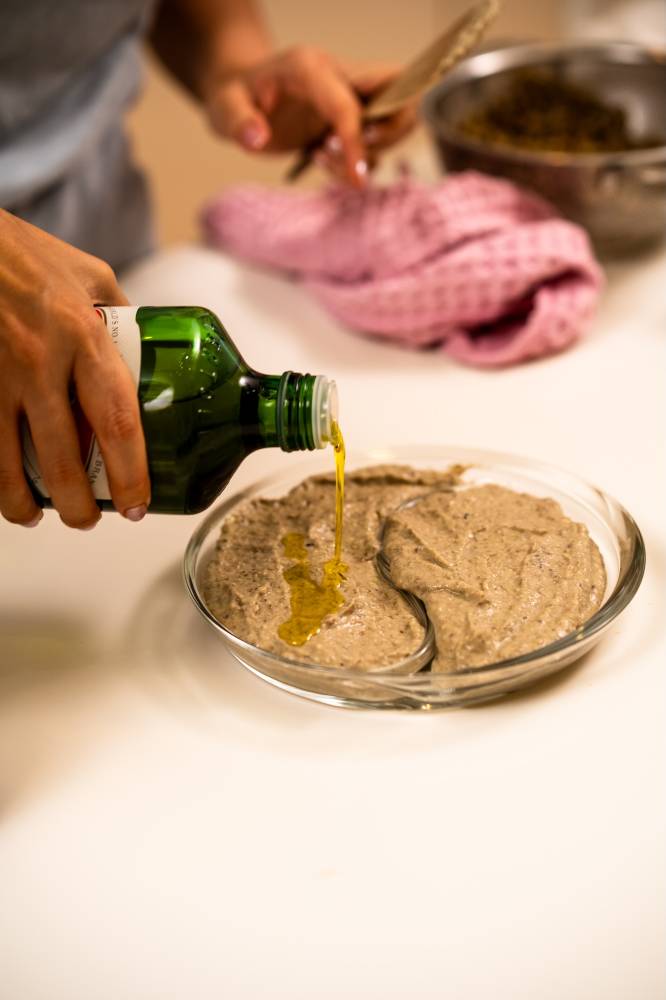
- Similar texture
When cooked until tender, monggo becomes soft and creamy—ideal for blending into a smooth paste. Like chickpeas, they hold structure while still breaking down easily. There are two kinds of monggo—monggo kintab, or shiny—which stays more firm even with soaking and boiling, and monggo labo, which is softer and murkier. For this hummus dish, look for the ‘labo’ variety, as you will want it as creamy as possible.
- Nutty, earthy flavor
Mung beans have a mild, slightly sweet earthiness. This pairs beautifully with tahini (sesame paste), garlic, olive oil, and lemon or calamansi.
- Local, affordable, sustainable
In the Philippines, monggo is more accessible and budget-friendly than imported chickpeas. Choosing locally grown legumes reduces food miles and supports local farmers.
- Nutritional benefits
Mung beans are:
*High in plant-based protein
*Rich in fiber
*Packed with folate, magnesium, and antioxidants
*Naturally low in fat
Traditional hummus from the Middle East often features a creamy chickpea base, richness that comes from tahini, lots of lemon, garlic, and olive oil. Monggo hummus on the other hand is a little gentler on the palate—sweeter and less heavy. For extra kick, I’ve added cumin but also feel free to try curry powder. I also added some serving suggestions for interesting takes on it.
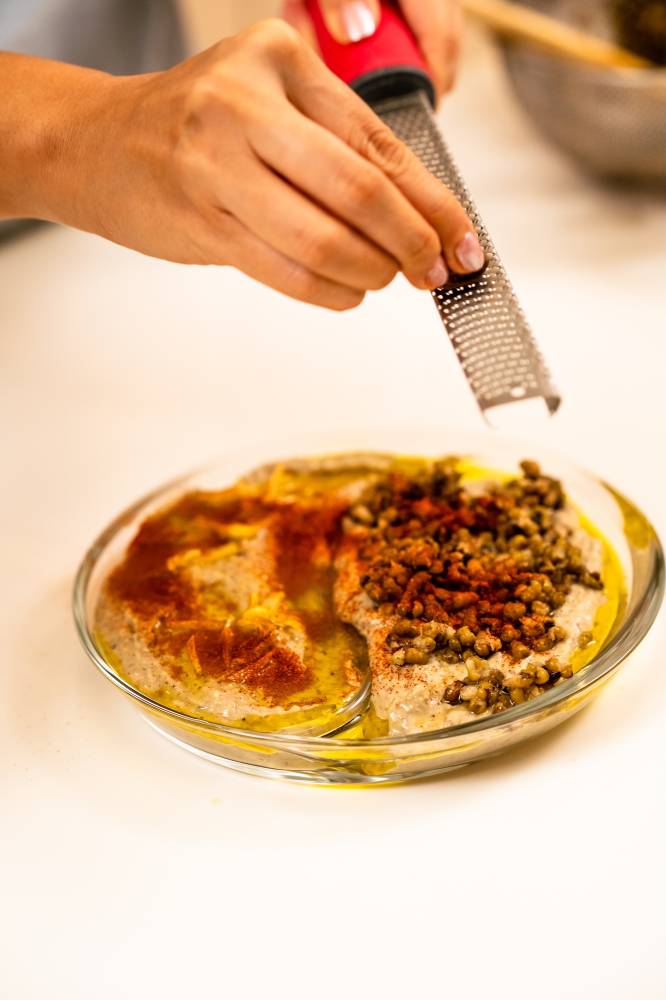
Ingredients
*1 cup dried monggo (mung beans), soaked and cooked until soft
*1 to 2 cloves garlic
*Juice of 1 or 2 calamansi (or half a lemon)
*2 to 3 tablespoons olive oil
*Salt to taste
*Cooking water from monggo (as needed for blending)
*Pinch of cumin
Instructions
- Cook soaked monggo until very tender. Drain, reserving some cooking liquid.
- In a food processor or blender, combine monggo, garlic, citrus juice, salt, and olive oil.
- Blend until smooth, adding cooking water gradually for desired consistency.
- Taste and adjust seasoning.
- Serve drizzled with olive oil and topped with paprika, toasted sesame, or chopped herbs.
Monggo hummus is versatile. Here are some serving suggestions to create your own twist for your desired occasion.
- Malunggay boost
Blend in fresh malunggay leaves for added nutrients and a deeper green color. Monggo is often served with malunggay, but this time, it takes on a different form.
- Smoked tinapa version
Incorporate flaked smoked fish for a savory, umami-forward spread—perfect with pandesal.
- Spicy sili kick
Add chopped red chilies or chili oil for heat.
- Coconut-lime fusion
Swap part of the olive oil with a small amount of coconut oil for a subtle tropical aroma.
How to serve monggo hummus
Monggo hummus bridges cuisines effortlessly. Try it:
*As a dip with pita, flatbread, or pandesal
*Spread on whole-grain toast with tomatoes and cucumbers
*As a sandwich base instead of mayonnaise
*Paired with grilled vegetables or chicken
*As part of a mezze-style platter with olives and pickled vegetables
*It also fits beautifully into modern wellness-focused diets—whether you’re eating plant-based, high-protein, or simply trying to incorporate more whole foods.
Sunday, February 22, 2026
“Your words, Lord, are Spirit and life”
By Fr. Roy Cimagala
Chaplain
Center for Industrial Technology and Enterprise (CITE)
Talamban, Cebu City
Email: roycimagala@gmail.com
THAT’S from the Gospel of St. John (6,63) and is used often as a Responsorial Psalm in many Masses. It reminds us that God’s words, though written also by men and use human elements with all their limitations, have a transformative power that gives spiritual nourishment and guidance to us. In the end, we are reminded that God’s words are what would actually give us the real life meant for us.
We need to understand that God’s words should take precedence over any human reasoning, philosophy or ideology. And that’s because God’s words are obviously divinely inspired that originate from a higher power and not limited by human understanding. They have a timeless and universal scope that will always be relevant across eras and cultures. They are actually infallible and contain wisdom that is beyond human comprehension.
In contrast, human philosophies and ideologies are limited by human perspective, shaped by individual or cultural biases. They are imperfect, prone to errors and flaws. And they usually are relevant only to specific contexts or times. God’s words offer, on the other hand, a broader, deeper and more enduring truth, transcending human wisdom.
Let’s remember that God’s words as spoken to us by Christ are no ordinary words that would just come and go. His words are eternal, effective and ever relevant to everything that happens in our life. His words will always shed light and give meaning to every event, situation and predicament we can have in this life.
The Letter to the Hebrews says as much: “The word of God is alive and active. Sharper than any double-edged sword, it penetrates even to the dividing soul and spirit, joints and marrow. It judges the thoughts and attitudes of the heart.” (4,12)
The Letter to the Hebrews continues by saying: “Nothing in all creation is hidden from God’s sight. Everything is uncovered and laid bare before the eyes of him to whom we must give account.” (4,13)
We have to realize that we need to be guided by God’s words rather than by our own thoughts, reasoning and estimations of things alone. No matter how brilliant and clever we are, we can only go so far in understanding things in this world, many of which are very mysterious to us.
We have to develop a fondness for the words of God. This we can do as long as we exert due effort and continually ask, with humility, for the grace of God. Without these requirements, we can easily be swept away by the many alluring ideologies in the world.
It’s when we listen and live by God’s words that we attain our human and Christian maturity. And as St. Paul would say, we would then be like infants no longer, “tossed back and forth by the waves, and blown here and there by every wind of teaching and by the cunning and craftiness of the people in their deceitful scheming.” (Eph 4,14)
It’s important that we spend time developing a liking and an intimacy with the words of God. We have to read and meditate on them daily, and use them as the spirit behind all events, activities and concerns that we have during the day.
Let us promote a culture of gospel-reading and meditation everyday. A few minutes with the gospel daily can go a long way in putting our life on the right path. We should not miss the great treasure we have in the gospel. We can use the new technologies to promote this culture.
Saturday, February 21, 2026
Davao City greets Muslims on Ramadan
By Ivy Tejano
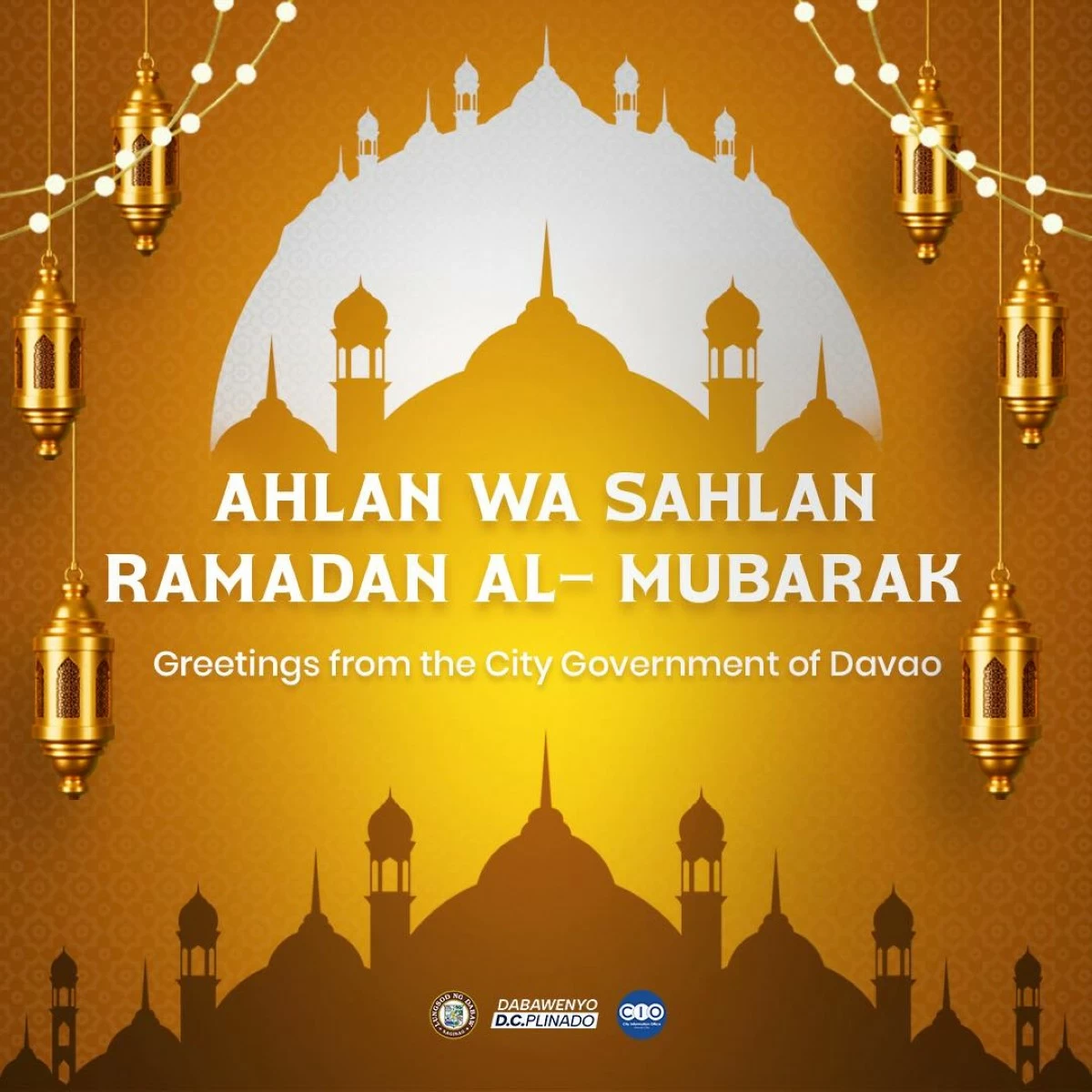
DAVAO CITY – The Davao City government wished Muslim residents peace, reflection, and abundant blessings as they began observing the holy month of Ramadan.
Rep. Paolo Duterte greeted the Muslim community Assalamu Alaikum wa Rahmatullahi wa Barakatuh (May the peace, mercy, and blessings of Allah (God) be upon you) and emphasized the month as a time for fasting, prayer, and reflection.
Duterte highlighted the values of faith, compassion, discipline, and care for one another and called on Filipinos to renew their commitment to justice, humility, and service while strengthening unity across communities.
“May this holy month bring peace to our hearts, clarity of purpose, and strength to face our shared challenges,” Duterte said. “May it inspire us to lead with integrity, serve with sincerity, and act with mercy.”
“Ramadan Mubarak (Have a blessed Ramadan). May Allah accept our fasting, prayers, and good deeds,” the Davao lawmaker added and wished for a peaceful holy month.
Davao City Police Office acting director Police Col. Mannan Muarip joined the Muslim community in the first night of Ramadan at the Davao City Islamic Center on Trading Boulevard.
Muarip donated a sack of rice to support the congregation’s daily iftar, highlighting DCPO’s “Oplan: Amanah,” which seeks to strengthen partnerships, unity, and community service.

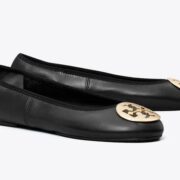
.jpg)